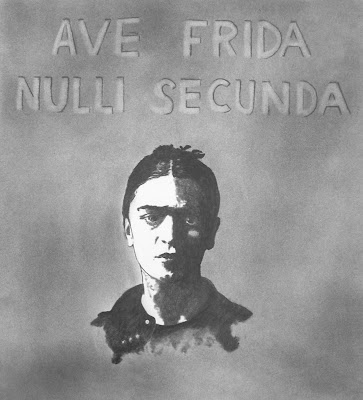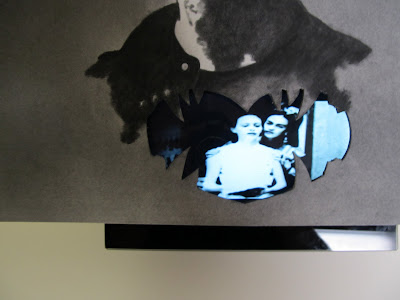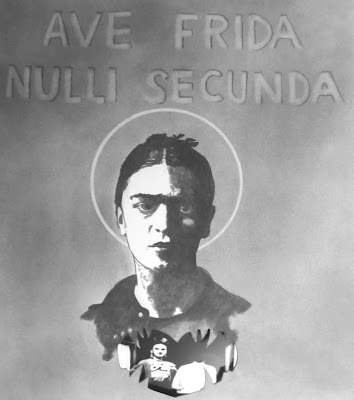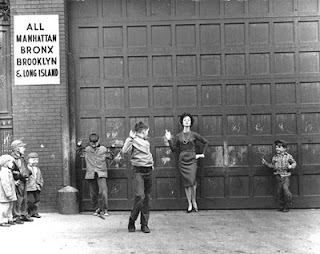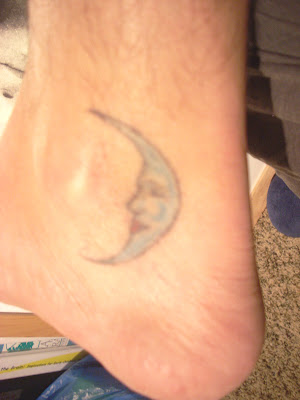The Mother of All Rock Fights
For about five or six years now I've been working on writing down my memories of my early childhood in Cuba, which is where I was born and lived my early years before my family escaped to the United States in the 60s. I hope to one day pitch it to some publisher. The below piece is a second peek at a chapter draft somewhere in the middle of the book. It is titled "The Mother of All Rock Fights," and feedback, suggestions and criticism is welcome!
The Mother of All Rock Fights
Depending on who you believe, the mother of all rock fights started with either a push, or a slip into the dirty, sewage waters of the Guaso River in Guantanamo, Cuba.
Even now, nearly forty years later, it stands out as vividly, as spectacular, as surreal and as immensely impossible, as on the day that it happened.
Sometimes in the early 1960’s a new baseball stadium was built in the outskirts of Guantanamo. At the time, to us local children, it was beautiful new place, a shrine to the love of baseball that all Cubans have. We didn’t notice or care, that all seats were made of cement, and that it was a grim, stark and bare bones space.
But at least to us boys it was a wonderful, beautiful place, where once in a while even the Orientales, the provincial team that represented our honor in the national baseball leagues (and always seemed to lose to the hated Havana teams), played.
My father also loved baseball, and he was the un-official baseball escort for all the boys in the neighborhood, and often he would lead a dozen of us ruffians to a game at the stadium, which was named Van Troi, in honor of a shadowy slain North Vietnamese guerrilla fighter who had been killed in the Viet Nam war.
Why name a baseball stadium after a man who probably never heard of baseball was also a mystery to us, especially since we all knew the names of all the real baseball gods, both Cuban and Americans. But more on baseball later.
As I said, Van Troi Stadium was a few miles outside of the city, and we all usually caught the bus that stopped at the bottom of Second Street, directly across from the side of our house that ran downhill through that street. We took that bus to the edge of the city and from there we all walked, usually with hundreds of other people, to the Stadium.
From Guantanamo the trek to the Stadium could be made via two different routes. The longer and safer route was through the metal bridge that spanned the Guaso River. Crossing this bridge was always a thrilling adventure to me. The bridge was a metal arch, and the walkways on either side were made of metal grilles that allowed you to see the river below you as one crossed the bridge.
Because the bridge was – at least in my eyes – just a few feet above the rushing water, there was always a sense of immediacy – and danger – from the fast flowing Guaso River rushing underneath your feet. It was also quite a wide crossing, as the Guaso was a rather wide river at that point and often, when augmented by tropical rains, as when the Flora hurricane passed through Oriente province in the early 60’s, would flood the city. In fact, the metal bridge of my memories may have been a "new" bridge built after Flora, which may have wiped out the older bridge.
Anyway, the bridge crossing was adventurous, and I would always plan it ahead at the beginning of the crossing. I always had a strategy in case I fell off the bridge or in case the bridge collapsed while I was in the middle of it. This always demanded knowing exactly where on the bridge I was, and which direction (backwards or forwards) was the shortest path to land.
Once we crossed the bridge, the road to the Stadium was through a slightly hilly unpaved street, almost a country road, and sometimes we would stop and rest at a house where my father was friends with the family who lived there.
There we would always buy a bottle of pru, which is a homemade Cuban soft drink. We would usually bring the drinks along the rest of the walk to the stadium and sometimes carry extra bottles with us to drink later.
Once, my cousin Cesar had the task of carrying all the extra bottles, and when we arrived at the Stadium, we discovered that he had drunk all of them on the way to the ballpark.
As pru is actually some kind of a fermented non-alcoholic drink, and being homemade, possibly not the purest of drinks, he immediately developed a tremendous case of diarrhea halfway through the game and never made it to the stadium’s bathroom, and managed to shit all over his pants, much to his embarrassment and our delight.
In any event, this route was the safer, but the longer of the two ways to get to Van Troi Stadium. The second route was a short cut that involved crossing the river though a series of rocks that had been strategically placed at a narrower portion of the river, about half a mile downriver from the bridge.
Now, these weren’t (by any stretch of the imagination), large, flat rocks, but a series of mossy, slippery rocks that sometimes even demanded a slight jump from rock to rock, rather than just steps. In fact sometimes, one could actually step from rock to rock, while other times you needed a synchronized ballet to jump to a small rock, and use it as a spring to the next, larger safer rock, as there was no room in the small rock to actually land and stabilize one’s body. It was a dangerous and almost incredible risk, and yet at the time it seemed as natural as crossing the bridge.
The choice was always based on the availability of the rocks themselves. If the river was too high, then we took the bridge, if the river was low and the rocks exposed, then we’d all cross the river at the rock crossing. Hundreds of people, usually all men and boys and all heading to the game through the river shortcut.
To add an ever greater sense of danger to this crossing, was the repugnant fact that the city’s raw sewer lines came out somewhere between the bridge and the rock crossing.
And this was completely untreated, raw sewage at its most luxuriant stage of smell and visibility. The river, which was clean and clear when we looked at it from the bridge, became shit brown and foul by the time it arrived at the rock crossing and turds floated like brown torpedoes all around you as you gingerly made your way across the rocks.
It never occurred to us why the rock crossing had been built after the sewage lines, rather than before it – who knows, perhaps it pre-dated the sewage lines, but the immense danger of crossing the river by skipping across slippery, mossy rocks was multiplied by a million when one considered what would happen if one had the misfortune to slip and fall into the shitwater.
And it did happen quite often! Someone would be a little too cavalier in the crossing, or sometimes someone too tipsy from drinking too much beer at the games, lose concentration, slip and fall, to the cheers and laughter and applause of the rest of us. And falling near the riverbed was the worst, as the shit tended to concentrate there, while the river current, although faster and more dangerous in the middle, tended to keep the middle of the river cleaner.
The edges were absolutely gross. A luxuriant, rich, thick mixture of shit and mud demanded strict attention and concentration. In response to this, whoever had originally placed the rocks to build the crossing, had thankfully placed larger rocks at the edges, some of which actually could accommodate several persons at once. This had an indirect cause in the overall accumulations of tiny events that all led to the greatest rock fight in history.
I always recall the crossing of the river at this point as a true adventure. Sometimes I was a pirate, usually Emilio Salgari's El Corsario Negro, getting away from the Spanish soldiers; at other times I was an astronaut discovering another planet. But I was always in a high state of concentration, always ensuring that I never slipped and always focusing on the next rock, especially when we neared the edges, and the river became a mass of mojones, which is what we called turds, and birds eating all the gross insect life that lived amongst it.
Sometimes a particularly spectacular mojon would float by, or a fleet of mojones, to the delight of us kids crossing the river. We would shout in unison and point to the mojones and exaggerate their sizes and speed. The word mojon is an interesting one, and I’m not sure where it comes from, or if it is a Cuban slang or a true Castilian word. It literally means someone or something that is wet, and has no relation that I can think of to the Spanish word for shit, which is mierda.
Regardless, the river at this point was full of mojones, and stinking of mierda and we would always be alert and I never recall any of our gang falling into the river.
Until the greatest rock fight in history. Truly the mother of all rock fights.
On that particular day, we had all trekked to the stadium not to watch a baseball game, but to watch something different in our perception of sports, at least to Cubans: a soccer match.
While soccer is a big thing in nearly all Latin American countries, in fact nearly a religion in most, it was and probably still is, a curiosity and ignored as a sport by most Cubans.
This arises from the fact that soccer – like bullfights – was a "Spanish sport" enjoyed by Spaniards in Cuba, and thus disliked immediately by Cubans, who wished to remove all things Spanish from the young republic. Spaniards like soccer and bullfights while Cubans preferred baseball and cockfights; Spaniards drank wine, Cubans drank beer and rum, etc.
Anyway, on the day of the greatest rock fight in history, there was a soccer match staged at Van Troi stadium, and as most of us had never seen a soccer match before, a curious crowd of several thousand local men and boys made the trip, either through the bridge or through the rock crossing, and congregated at the ballpark to watch the game.
It was a disaster.
One of the teams had traveled from Havana, and was on a nationwide tour to help spread soccer among Cubans. The second team was made up at the last minute from Guantanamo men from the Institute (the local junior college) or local baseball players who had not been selected for any of the national league teams. I bet that for some of the locals, it was the first time that they had ever actually played soccer.
It was the most boring sports spectacle that I recall ever witnessing, played on a baseball field, with the pitching mound still in place, and soccer lines marked at the last minute with white chalk lines.
I recall the entire game consisting of the ball being kicked from one extreme end of the field to the other, with little of the precision and foot skills that only experienced soccer players can display. One just can’t show up one day and decide to dribble with your feet – it just doesn’t happen, and it showed.
And Cubans are just not culturally designed to play soccer, which demands precise teamwork and strategy, as opposed to individualism on the field, which is what the inept soccer players on the soccer pitch, I mean baseball field turned soccer pitch for that day, attempted to do.
The crowd was bored and delighted us by hurling insults at the players, and booing throughout, and only applauding when a fight broke out on the field, which was practically every few minutes, when aggressive, inept Cuban men kicked each other’s shins in futile attempts to get to the ball.
The soccer experiment was a boring disaster, and when the game ended, scoreless as I recall, the crowd was in a dark mood as it left the Stadium and headed back to the city, most of us through the river rock crossing.
And this mood was the second ingredient in the recipe for the chain of events that led to the greatest rock fight in history.
Here is what happened.
I had just crossed the river, and along with my father behind me, begun the slight climb from the river slopes towards the streets above it. At that point, one had a great view of the river and I recall turning around to see the long line of people, like ants, crossing the river, jumping rocks and making their way back to the city.
And then it happened.
Monguito fell into the shitwater; not the middle, cleaner part of the river, with fast moving water and smaller rocks, but near the banks of the river, with turgid, stagnant mud and shit.
Whether he slipped or fell is a matter of debate. As I said before these bank rocks were larger and thus "safer" than the smaller, middle-of-the-river rocks, and Monguito claims that as he was standing on one of these rocks, Gustavito, who lived in the house directly below our house on Second Street, and who was a perennial enemy of the Monguito brothers, pushed him from behind.
Gustavito, who was a feisty (and always ready to pick a fight), scruffy, short bulldog of a boy, with a flat top blonde haircut, and he looked like a miniature of his father, who was a professional boxer, has always denied pushing Monguito, claiming that he was nowhere near Monguito when Monguito fell or was pushed in.
Anyway, Monguito emerged from the river completely covered in shit and mud and looking for revenge. The people who were still on the rocks were dying of laughter as he made his way up the banks of the river, and the crossing momentarily stopped as the elder of the two Monguito brothers emerged from the muck.
And he turned to face his laughing tormentors, and he was looking for revenge.
He then spotted Gustavito, still on a rock on the river, also laughing and in fact doubled over with laughter. And in Monguito’s mind, somehow, it became clear that his archenemy had some hand in his fall.
And he picked up a rock, and with the brilliant aim of someone with a thousand previous rock fights of experience, lobbed it in a long arch towards Gustavito, who was too lost in laughter to notice the incoming missile as it hit him and made him fall into the river.
Now the other river crossers really exploded in laughter – this was too much! Two falls in one crossing – this alone was worth the boring experience of the soccer game!
But Gustavito, who had not seen who had thrown the rock, emerged from the river also looking for revenge, and incredibly enough began picking up rocks from the river itself and pelting the crowd with shit covered missiles.
And suddenly pandemonium broke out as people began to fall into the river and more rock throwers were added to the battle. From our safe side on the land, we all joined in to try to nail those still clinging to the relative safety of the rocks.
Some tried to turn back and head to the other side, colliding with crossers coming over and more and more people fell into the water, creating several water battles as men fought each other in the water, on rocks and on the shore. And the people already on the banks of the rivers were also good targets for us, as we were higher above them on the streets that ran parallel to the river.
And thus, from the relative safety of those streets above the river, we were on a superior position to rain rocks on all of those unfortunate souls below us while being able to dodge all incoming rocks; all except Pepin, who as usual got his head cracked open by a rock, even though he was with us on the streets, desperately, from his superior position, trying to help his brother Monguito below.
And for a glorious ten minutes or so, the greatest rock fight in history went on along the shitty shores of the Guaso River, involving perhaps one hundred men and boys of all ages, with the distinct advantage to those on the shore, many of whom were covered in shit, having at one point been on rocks and knocked off either trying to avoid a rock, or being hit by one or pushed by another person attempting to cling to the rock.
If the latter was the case, then it was a matter of honor to get to the shore and attempt to knock off your pusher by nailing him with a rock.
At some point in the battle, even flying turds were being lobbed, to the horror of some of the participants, already covered in shit, who were now being pelted by flying turds and mud.
I cannot remember how and when the greatest rock fight in history ended, perhaps the militia or the cops showed up, but I do recall walking back all the way from the edge of the city to our neighborhood, because there were three in our group completely covered in shit: Monguito, Gustavito and Cesar, who somehow had ended up in the river as well, and Pepin covered in blood from his head wound.
Because of shit and blood, the bus driver would not allow them in, and my father couldn’t leave them to walk alone from that far. It was quite an interesting trek, and we made them walk downwind behind us, only stopping once in a while to break up the occasional fights between Monguito and Gustavito.
When we got home, my grandmother gave my father hell over his supervision of us, and Elba, Pepin’s mother, swore blue murder at my father for not taking Pepin directly to the hospital.
My grandmother then took Cesar to the back garden, where he was hosed down with the garden hose, while the rest of us, less the other two who had fallen in, and Pepin who was on his way to the hospital for his usual visit to stitch up his head, climbed to the roof of the house to watch Cesar being scrubbed clean from head to toe while we drank cold lemonade that my mother had just made.
Thus truly ended the greatest rock fight in history.




